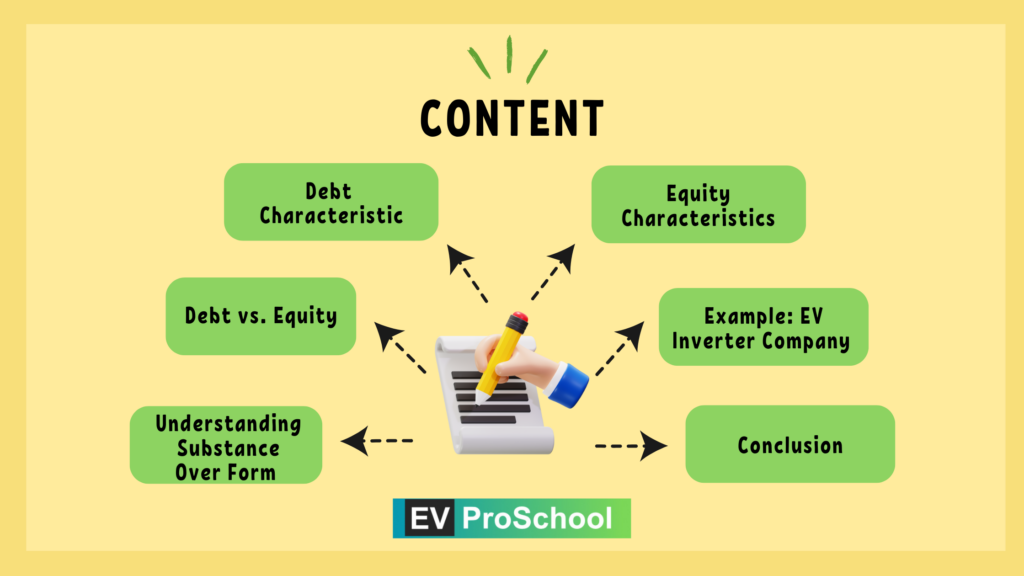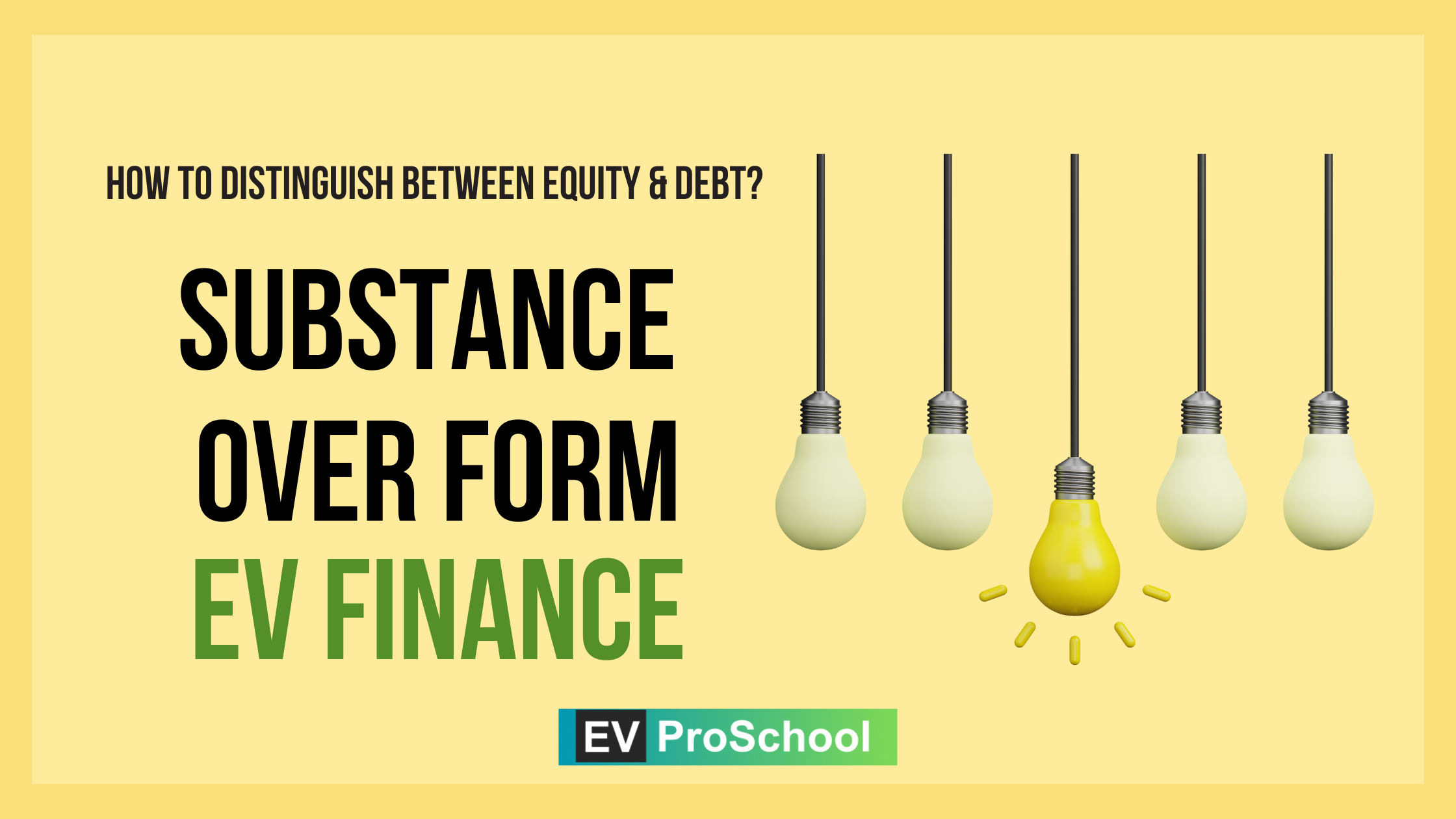In the complex world of corporate finance, the principle of substance over form plays a critical role, especially when distinguishing between debt and equity. This accounting principle dictates that the economic substance of transactions should prevail over their legal form. For the electric vehicle (EV) inverter industry, this distinction is vital, as it affects everything from financial reporting to tax implications and investment strategies.

Understanding the Substance Over Form
The concept of ‘substance over form’ is parti cularly relevant when classifying funding as either debt or equity. The economic realities can differ significantly from the legal structuring of an instrument. For instance, preference shares may be legally considered equity, but their fixed dividend payments can give them the substance of debt.
Debt vs. Equity in the EV Inverter Industry
The EV inverter industry, which is pivotal in converting DC power from batteries to AC power for electric vehicle motors, requires significant capital investment. Let’s dissect the nature of redeemable preference shares, irredeemable cumulative preference shares, irredeemable non-cumulative preference shares, and ordinary shares, considering the substance over form.
Debt Characteristics:
- Redeemable Preference Shares: These shares, which can be bought back by the issuing company, offer fixed dividends and are legally considered equity. However, due to the obligation to repay the principal (redemption) and pay dividends (which can be seen as interest payments), they often have the economic substance of debt.
- Irredeemable Cumulative Preference Shares: Despite being non-redeemable, these shares accumulate unpaid dividends, creating a liability for the company. The obligation to ‘clear the arrears’ before other dividends can be paid gives them a debt-like quality.
Read More : Balancing the Books: Accounting in the Indian EV Industry

Equity Characteristics:
- Irredeemable Non-Cumulative Preference Shares: These shares, which do not accumulate unpaid dividends, are closer to equity in substance. There is no obligation on the company to pay the dividend, and unpaid dividends do not accumulate.
- Ordinary Shares: They are pure equity both in legal form and economic substance. They carry residual risk and reward, with dividends entirely at the discretion of the company and payable after meeting all other obligations.

Example: EV Inverter Company “VoltTech”
Let’s consider “VoltTech,” an EV inverter manufacturer. To finance its expansion, VoltTech issues both redeemable preference shares and ordinary shares.
- The redeemable preference shares carry a fixed dividend and must be redeemed after five years, placing a financial obligation on VoltTech. Despite being classified as equity, for financial reporting and tax purposes, they are treated more like debt due to their obligatory nature.
- VoltTech’s ordinary shares, on the other hand, represent true ownership stakes in the company, with variable dividends based on profits. They carry the full risk and reward potential of the company’s performance and are clear-cut equity.
Conclusion
In the EV inverter industry, distinguishing between debt and equity through the lens of substance over form is not just an academic exercise; it has practical implications for managing financial structures, tax strategies, and investor relations. By looking beyond the legal form to the economic substance of financial instruments, companies like VoltTech can ensure that their capital-raising activities align with their strategic objectives and accurately reflect their financial health. Understanding this distinction is paramount for accurate reporting, sound financial strategy, and sustained growth in the EV sector.



